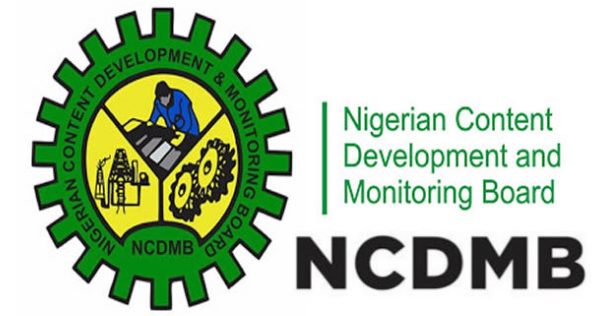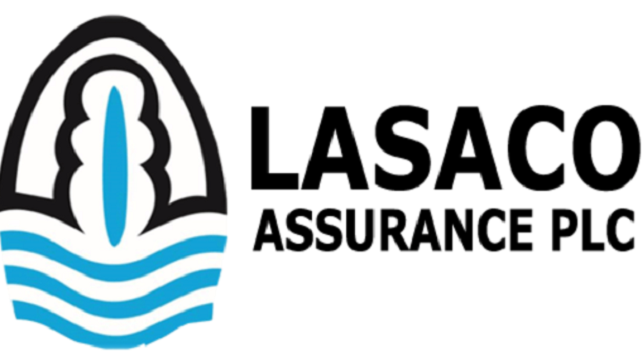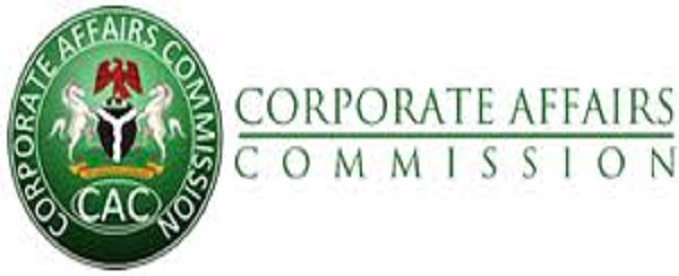News
FG Laments Poor R&D Expenditure, Floats $50m Research Fund

The federal government through the Nigerian Content Development Monitoring Board (NCDMB), floated a $50 million Nigerian Content Research and Development Fund (NCRDF) to boost innovation in the country.

The government noted that the 0.2 per cent currently devoted to Research and Development (R&D) in the was very negligible, noting that developed nations such as the United States, China, Japan, Germany, and South Korea spend between 2.5 to 4 per cent of their annual Gross Domestic Production (GDP) on research.
It also noted that even developing nations such as India, Malaysia and Brazil spend between 0.7 per cent and 1.2 per cent, whereas Nigeria continues to lag well behind by deploying only about 0.2 per cent of its GDP.
Speaking at the second NCDMB Research and Development Fair and Conference in Yenagoa, Bayelsa state, the Minister of State, Petroleum Resources, Chief Timipre Sylva, explained that underfunding of R&D was reflecting on Nigeria’s overdependence on foreign goods and services.
The event also witnessed the formal launch of the NCDMB 10-year R&D roadmap, anchored on eight success pillars, namely: funding, infrastructure, capability, commercial framework, co-llaboration, governance, legal framework and enforcement.
Represented by the Permanent Secretary at the ministry, Dr. Nasir Gwarzo, Sylva argued that the situation remained unsustainable if the country was serious about building a national technological capability that will drive economic growth.
“To put certain realities into context, there is a need to do a comparative analysis. Currently, developed nations such as the USA, China, Japan, Germany, and South Korea spend between 2.5 to 4 per cent of their annual Gross Domestic Production (GDP) on R&D, while developing nations like India, Malaysia, Brazil spend between 0.7 per cent to 1.2 per cent. Nigeria lags well behind by spending only about 0.2 per cent of its GDP on Research & Development,” he stated.
Sylva added that it was important to clear the misconception that funding of research was the sole responsibility of national governments, arguing that rather, big spenders on research and development globally come from the private sector.
“In 2019, private sector practitioners in the ICT hardware and electronic equipment sector, pharmaceutical & biotechnology sector, automobiles and components sector cumulatively spent $528bn on R&D, representing 22 per cent of the $2.3 trillion global R&D spend. In India, the private sector contributed 38.1 per cent of the country’s R&D spend.
“Still on funding and in line with our commitment to provide leadership, I am pleased to officially announce the creation of the Nigerian Content Research and Development Fund with an initial seed capital of $50 million,” he announced.
He explained that the fund was designed for application in the establishment of research centres of excellence, funding support for research commercialisation, funding support for basic and applied research as well as the endowment of professorial chair.
The minister noted that though clearly insufficient, it signified the premium the present administration places on growing the nation’s research and development capabilities. He encouraged the private sector to replicate the global practice by complementing the NCRDF and actively support the government’s drive in upscaling its national research architecture
According to him, with the Petroleum Industry Act (PIA), a governance framework for the industry with clear delineation of roles between regulation and profit-centric business units has now been established.
Members of the newly-constituted NCRDC included Dr. John Erinne, Mr. Ijuwe Albert ,Mr. Rosario Osobase , Dr. Noel Biodun Saliu, Alhaji Aliyu Adamu and Dr. Tandama Abu and will be headed by the Executive Secretary, NCDMB, Mr Simbi Wabote.
Sylva also commissioned the NCDMB Technology Incubation and Innovation Centre, which will provide the platform for idea generation, incubation and acceleration of innovative ideas to the marketplace.
Wabote in his comments, stressed that an analysis of global practices of R&D revealed that the combined spend of just five countries makes up 63.5 or cent of the entire global spend and also account for over 50 per cent of the global GDP.
“Africa, on the other hand, accounted for less than one per cent of the global R&D spend while its GDP is only 3 per cent of the global GDP. You will agree with me that there is a nexus between the spend on research and development and economic prosperity,” he argued.
He stressed that the authors of the Nigerian Oil and Gas Industry Content Development Act (NOGICD) of 2010 recognised the importance of research and development and included key provisions in the Act.
He stated that the board commenced the implementation of the 10-year strategic roadmap in 2018, which seeks to increase the level of Nigerian content in the oil and gas industry to 70 per cent by the year 2027.
The ES described R&D as the core of the industrial revolutions the world has witnessed over the ages, saying that it was important that countries deploy means of nurturing home-grown solutions as a means of wealth creation and growth.
In his contribution, Mallam Mele Kyari, the Group Managing Director, Nigerian National Petroleum Corporation (NNPC), disclosed that the corporation was happy to incorporate R&D into its processes, adding that as a technology-based industry, the NNPC had revved up research efforts to make it suitable for the future.
The Director, Department of Petroleum Resources (DPR), Mr. Sarki Auwalu, in his comments, noted that the oil and gas industry must begin to see the world with new eyes which also presents an array of opportunities for learning and knowledge sharing.
He added that it was critical for the global oil and gas industry to remain efficient and innovative in responding to the emergence of cheaper renewables to sustain the relevance of hydrocarbon resources to the global energy mix.
“Therefore, research and collaboration from all stakeholders is crucial to remain competitive and to meet safe, clean and sustainable energy demands of the future,” he said.
News
Lasaco Assurance to Invest in Technologies, Systems to Deliver Value to Clients

Lasaco Assurance Plc, has said it would continue to invest in technologies and systems that delivers tangible value to clients and drive industry innovation.

Mr Abiodun Razzaq, Managing Director of Lasaco Assurance, who stated this at the 2025 customer forum organised by the company for its northern region customers in Abuja, said the forum’s interactive session offered an invaluable platform for open and constructive dialogue.
He said the forum brought together a distinguished assembly of customers, including policyholders, brokers, corporate clients, and industry partners, to engage in a robust dialogue aimed at enhancing service delivery and aligning offerings with the evolving expectations of the Northern market.
In his opening remarks, Regional Manager (Northern Region), Lasaco Assurance, Mr. Kunle Hamza underscored the company’s unwavering dedication to stakeholder engagement as a foundational pillar of its growth strategy. He emphazised that customer insights remain integral to shaping policies, refining service processes, and reinforcing the company’s brand promise.
He provided a compelling overview of Lasaco assurance’s recent performance and strategic priorities. He highlighted the company’s consistent premium income growth, bold digital transformation agenda, and ongoing operational restructuring designed to ensure responsiveness and resilience in a dynamic insurance landscape.
Addressing the customers, Mr. Adedayo Adetokun, Head of Strategy, affirmed that Lasaco assurance was actively developing multiple digital platforms to cater forvarious customer segments—part of a broader digital innovation roadmap that positions the company for future growth. He noted that human capital development was also being prioritised with targeted investments in talent acquisition and training to enhance operational capacity.
In his closing remarks, Mr. Muyiwa Anwoju, General Manager, Sales, expressed the management’s deep appreciation for the feedback received.
He assured participants that all contributions would be meticulously reviewed, categorised, and integrated into the company’s improvement plans. According to Anwoju, this forum marks the beginning of a renewed customer engagement framework, one that would be expanded across other regions in due course.
News
CAC Announces Upward Review of Service Fees

Corporate Affairs Commission (CAC) has announced an upward review of its service fees, which will take effect from August 1, 2025.

The announcement was made through the commission’s official social media page on Tuesday, June 17, 2025.
According to the CAC, the fee adjustment was necessary due to the current economic conditions, rising operational costs, and input from key stakeholders.
The statement read, “The Commission wishes to inform the General Public, Esteemed Customers, and all Stakeholders that in the continued efforts to improve its service quality and delivery, it has become necessary to review certain service fees effective the 1st day of August 2025.”
The commission explained that the fee changes are part of efforts to deliver better and more digitalised services while maintaining the integrity of Nigeria’s corporate registry.
The revised fee structure will affect services related to companies, business names, limited partnerships, and incorporated trustees.
Key fee changes announced by the Corporate Affairs Commission (CAC) include adjustments across various service categories.
For voluntary striking-off, the fee is now ₦50,000 for small companies and ₦100,000 for public companies, up from the previous ₦25,000.
Relisting a company will cost ₦50,000 for LTD/GTE and ₦100,000 for public companies.
Due diligence through self-service is set at ₦50,000. Requests for extension of time to hold an annual general meeting will now cost ₦100,000 for public companies and ₦50,000 for others.
Historical search reports will range from ₦20,000 to ₦30,000 per request. A restriction of a director’s residential address now attracts a ₦25,000 fee, while obtaining a certified true copy of documents or extracts will cost ₦5,000 per copy.
For limited partnerships, both voluntary striking-off and relisting will cost ₦25,000. A letter of good standing will be ₦10,000, registration and certified copies of documents will be ₦30,000, and a change of name will attract a ₦10,000 fee.
Regarding business names, voluntary striking-off is now ₦10,000, relisting ₦25,000, and an application for cessation ₦10,000. The certified true copy of documents will cost ₦5,000 each, and restriction of a proprietor’s address will also be ₦25,000.
Name reservations remain at ₦1,000, while reserved names with restricted words still cost ₦5,000.
The new fee structure is expected to impact business owners, lawyers, compliance officers, and others who interact with the corporate registry.
News
Global Travel Made Simple with Kaspersky eSIM Store

Kaspersky eSIM Store is a new connectivity solution for international travel. Designed to make it easier for leisure and business travellers to stay online globally, it empowers users with easy Internet access across 150+ countries and regions, with a choice of over 2,000 affordable data plans.

The production of eSIM-compatible devices has increased tenfold in the last five years according to the GSMA. By 2028, it is expected that half of all mobile connections worldwide will use eSIM technology.
This rise in popularity is driven by eSIM’s convenience and ease of use – eliminating the need for physical SIM cards and enabling a hassle-free experience wherever you go.
To meet this growing trend, Kaspersky eSIM Store provides access to eSIM plans from local telecom operators all over the world – with an easy interface and simple management.
A new way to always stay connected
Kaspersky eSIM Store lets users to enjoy affordable and easily accessible Internet connections around the globe without the hassle of physical SIM cards. Users can seamlessly access eSIM plans from local telecom providers in 150+ countries and regions worldwide, providing favourable rates and transparent conditions without any roaming fees.
While travelling, an eSIM can help users avoid high roaming costs on a primary SIM, remove the need to search for a local SIM kiosk and share personal data with them, as well as avoiding the use of unsecured public Wi-Fi networks.
Instead, eSIM ensures that leisure travellers can focus on the joyful moments of their trip and instantly share them with friends and relatives, while business travellers have continuous access to important messages, working documents and video calls.
Seamless connection in a few taps
Kaspersky eSIM Store features a user-friendly interface for plan selection, purchase, top-ups, and data usage management. Travellers can choose their preferred activation date, allowing them to set up their eSIM in advance and be connected the moment their trip begins — all in just a few taps.
To match the needs of any traveller, there are many flexible ways to choose and manage data plans.
Options are available based on destination, including plans for specific countries, global plan 122 destinations, or mini-global plans tailored to specific regions.
For trip duration, travellers can select between expiring plans valid for a fixed period or non-expiring plans that remain active until the data is fully used. This ensures convenience whether the trip is short or long.
Additionally, users have control over when their plan starts. They can either schedule activation for a specific date or begin using the data immediately, providing flexibility to align with their travel schedule.
To ensure users never run out of GB unexpectedly, Kaspersky eSIM Store provides real-time data usage monitoring and alerts when a balance is near zero. The user profile (on the webpage or in the app) allows quick top-ups and supports multiple countries on a single eSIM – install once and use for a lifetime.
Kaspersky eSIM Store is launched in partnership with award-winning provider BNESIM Limited, which has been delivering global eSIM services since 2017.
“At Kaspersky we are constantly keeping up with latest trends shaping our digital habits, and eSIM is definitely one of them. eSIM technology greatly simplifies travelling abroad, allowing people to stay connected and not worry about issues like roaming charges.
“We know from our own experience how important it is to stay in touch with your family or colleagues when you are on a trip, so we designed Kaspersky eSIM Store for all types of travellers to ensure instant access to eSIM data plans wherever they go, as well as to provide a safe and positive digital experience,” – Mikhail Gerber, Executive Vice President, Consumer Business, Kaspersky.
Kaspersky eSIM Store complements Kaspersky’s wide range of industry-recognised solutions, such as Kaspersky VPN Secure Connection and Kaspersky Premium. Together they cover all modern connectivity needs and enhance digital freedom – ensuring safe, worry-free connectivity across the world.

 Telecom2 days ago
Telecom2 days agoGSMA, Mobile Industry Call for Strengthened Action to Advance Child Online Protection in Africa

 Telecom1 day ago
Telecom1 day agoALTON Clarifies on Migration to End-User Billing for USSD Services

 News2 days ago
News2 days agoDigital Africa Global Consult, NDPC Partner on Ground-Breaking “Nigeria Data Challenge” Initiative

 General News2 days ago
General News2 days agoTD Africa, HP Strengthen Partnership to Advance Africa’s Tech Ecosystem

 General News1 day ago
General News1 day agoAfrican Parliamentarians Seek Answers from Telcos on Quality of Service

 News1 day ago
News1 day agoFCCPC Orders Air Peace to Appear Over Alleged Refund Violations

 Telecom1 day ago
Telecom1 day agoLagos Future Conference 2025: Stakeholders Call for Digital Responsibility and Grassroots Innovation

 News1 day ago
News1 day agoDStv Rewards Loyal Customers with Free Package Upgrades






















